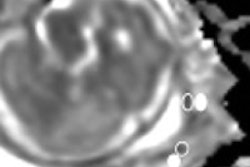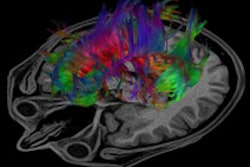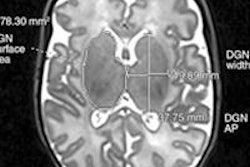MRI scans have discovered cognitive deficits and structural differences in the brains of school-aged children born a few weeks prematurely.
The study, presented on Monday at the Pediatric Academic Societies (PAS) annual meeting in Vancouver, British Columbia, found that the brains of children born just a few weeks early differed from those born on time, and those differences may affect learning and behavior.
Researchers from the University of Iowa analyzed MR images of 32 children between 7 and 13 years old who were born at 34 to 36 weeks (late preterm) of gestation. The subjects were also given tests to assess visual perception, motor skills and coordination, and behavior.
The late preterm children were compared with 64 children born at full term who were recruited for another study in which they received the same cognitive and behavioral assessments, neurological exams, and MRI scans.
Preliminary analysis showed differences in both cognitive function and brain structure in the late preterm children compared to full-term children. Functionally, late preterm children had more difficulties with visuospatial reasoning and visual memory. They also had more trouble automatically performing a simple task in an efficient manner.
Regarding structure, the brains of the late preterm children had less total cerebral white matter, which is critical to communication between nerve cells, and smaller thalami, a brain region involved in sensory and motor signaling.



.fFmgij6Hin.png?auto=compress%2Cformat&fit=crop&h=100&q=70&w=100)




.fFmgij6Hin.png?auto=compress%2Cformat&fit=crop&h=167&q=70&w=250)











